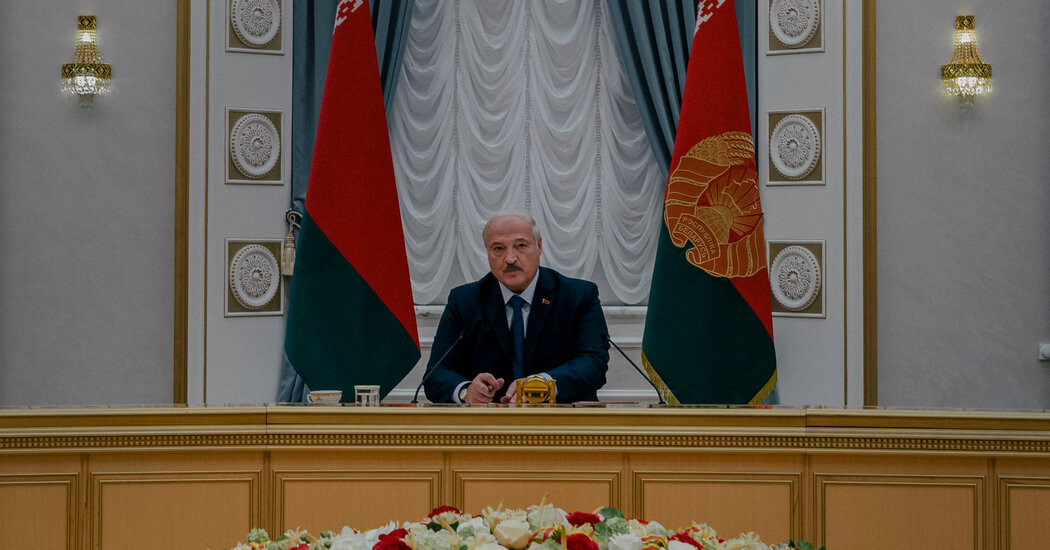

President Aleksandr G. Lukashenko of Belarus keeps arresting political opponents, but analysts wonder if a string of unusual pardons is a bid to get sanctions eased.
Aleksandr G. Lukashenko, the autocratic leader of the former Soviet republic of Belarus and an ardent backer of Russia in its war against Ukraine, seems to be back at an old game of maneuvering between East and West.
He has been resolute in his support of Russia, and this month announced that Belarus had Russian nuclear weapons on its soil and was ready to host what Moscow has called its new hypersonic ballistic missile if it is deployed.
But amid rising expectations for cease-fire talks over Ukraine, Mr. Lukashenko appears to also be trying to reboot his relations with the West, analysts say.
In recent months, he has pardoned more than 200 people jailed for participating in antigovernment protests in 2020, according to Viasna, a Belarusian human rights group in exile. Many analysts see that as a gesture aimed at persuading the West to relax sanctions. The demonstrations were in response to a presidential election largely seen as a sham.
The most prominent leaders of the 2020 protests are still jailed, including Maria Kolesnikova, who became a symbol of resistance to Mr. Lukashenko after she tore up her passport to avoid being deported from Belarus.
Belarusian news media have been spinning the pardons, which have been officially announced, though mostly without naming inmates or providing details, as a benevolent act by Mr. Lukashenko. The government has not publicly mentioned the link to sanctions.